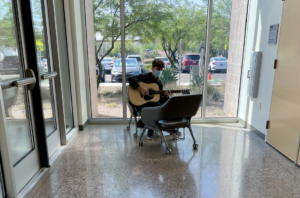Digital Media & Learning Competition Leverages Open Badges
 Badge systems aren’t a new concept. Boy Scouts of America has been utilizing the motivating tool for decades, encouraging young kids to learn and apply new skills for a vest iron-on as a display of knowledge and accomplishment. Today, social media has re-enchanted the idea of badges on social sites like Foursquare and Klout where users receive a badge for achieving milestones in the program. Now, education leaders today are looking to badge systems to encourage and demonstrate the acquisition of knowledge and skills in informal settings.
Badge systems aren’t a new concept. Boy Scouts of America has been utilizing the motivating tool for decades, encouraging young kids to learn and apply new skills for a vest iron-on as a display of knowledge and accomplishment. Today, social media has re-enchanted the idea of badges on social sites like Foursquare and Klout where users receive a badge for achieving milestones in the program. Now, education leaders today are looking to badge systems to encourage and demonstrate the acquisition of knowledge and skills in informal settings.
A new game-based strategy called Digital Media and Learning Competition, hosted by the John D. and Catherine T. MacArthur Foundation, HASTAC, and Mozilla, plans to leverage badges and badge systems to help people learn and demonstrate skills and knowledge.
“Digital technologies are helping to re-imagine learning, and badges are emerging as a new way to both encourage and demonstrate the acquisition of knowledge and skills of all kinds—in formal and informal settings,” says Julia Stasch, Vice President of U.S. Programs at the MacArthur Foundation.
Stasch adds, “Badges are simple, easy and, if done well, can present a more nuanced picture of what an individual knows and can do. There is much more to learn and we expect that this competition will contribute to developing a badge system that could change the way people share information about themselves, businesses make hiring decisions, and organizations support the acquisition of skills important to their mission or to the larger society.”
This $2 million competition asks leading organizations, learning and assessment specialists, designers and technologists to create and test digital badges and badge systems. The project hopes to find new ways to show learning accomplishments in the 21st century with technology, web-based programs and other digital tools.
“The web is revolutionizing how we learn. But until now, it’s been too difficult to get recognition for the skills and achievements people are getting online or out of school,” says Mozilla’s Executive Director, Mark Surman. “Our Open Badges project is working to solve that problem, giving leaders in informal education a free and open way to recognize new learning and 21st century skills—leading to real world results like jobs or formal credit. Mozilla believes that’s the key to making education work like the web.”
Awards for best badges for lifelong learning range from $10,000 to $200,000. The best badge concept or prototype that serves veterans seeking good-paying jobs in the “Badges for Heroes Challenge” will be awarded a $25,000 prize from the Department of Education and Department of Veterans Affairs Innovation Initiative (VAi2).
“This Digital Media and Learning Competition seeks to test the effectiveness of digital badges and badge systems as a fine-grained way for assessing learning pathways and learning outcomes,” says David Theo Goldberg, director of the University of California Humanities Research Institute, who co-administers the Digital Media and Learning Competition with Cathy Davidson of Duke University. “We are excited by the collaborative interest this focus has generated across a broad swath of constituencies, and we are looking both to generate creative badging systems and to learn a great deal ourselves about badging as effective assessment tools.”
Video streaming by Ustream
For more information, visit www.dmlcompetition.net.




0 Comments
Leave a Comment
Your email address will not be published. All fields are required.